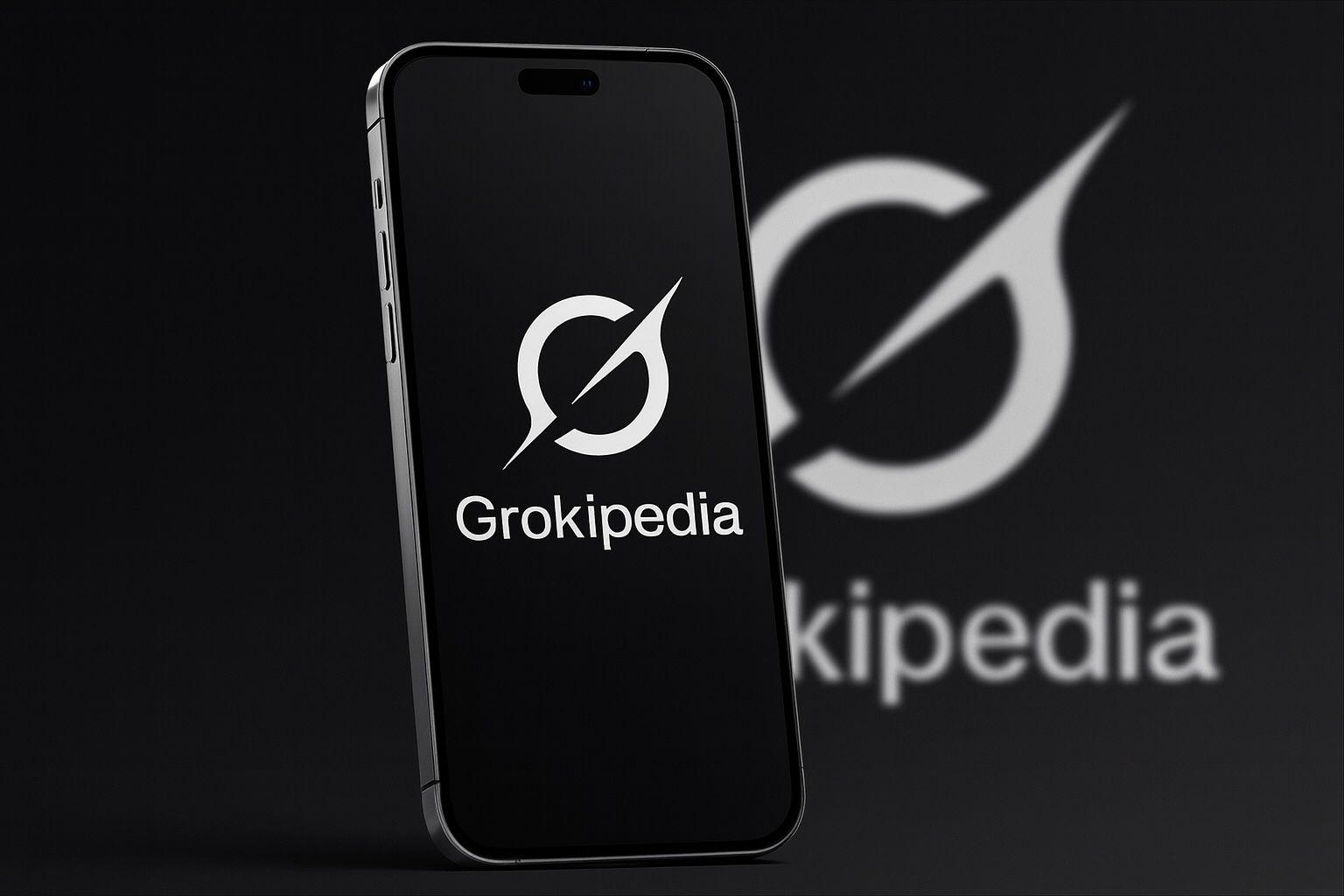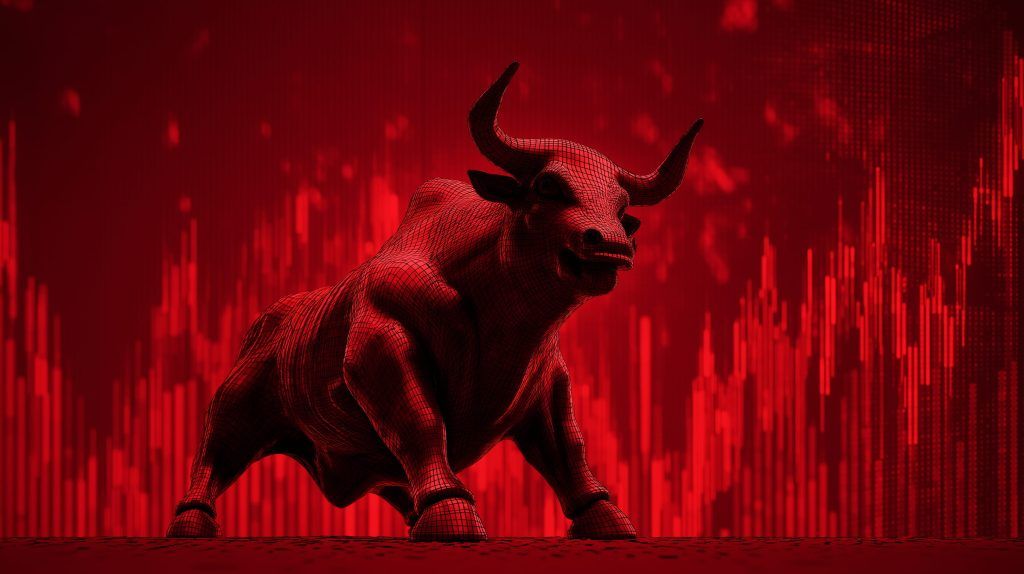- Musk’s AI Encyclopedia Launch: Elon Musk’s AI startup xAI quietly launched Grokipedia – an AI-generated online encyclopedia – on Monday, positioning it as a rival to Wikipediawired.com. The site debuted with ~885,000 articles and a minimalist Wikipedia-like interfacefoxbusiness.com, though it briefly crashed on launch day under heavy traffic before returning onlinefoxbusiness.com. By comparison, Wikipedia hosts over 7 million English articlesbusinessinsider.com.
- “Truth-Focused” Alternative: Musk, who has long accused Wikipedia of “editorial bias,” touts Grokipedia as a more “truthful and independent” knowledge sourcefoxbusiness.com. He delayed the initial release to “purge out the propaganda” and claims the AI-powered platform will fix perceived liberal bias in mainstream sourcesfoxbusiness.com. “Will be a massive improvement over Wikipedia… a necessary step towards the xAI goal of understanding the Universe,” Musk proclaimed in a September post on X (formerly Twitter)foxbusiness.com.
- AI-Generated Content & Wikipedia Reliance: Unlike Wikipedia’s crowd-sourced, human-edited model, Grokipedia’s entries are AI-generated by xAI’s Grok chatbot and largely closed to public editing. Users cannot freely edit pages but can submit correction requests via a formndtvprofit.comndtvprofit.com. Many Grokipedia pages openly acknowledge being “adapted from Wikipedia” under a Creative Commons licensetheverge.com, and some entries were found nearly identical to their Wikipedia counterpartstheverge.comtheverge.com – prompting Wikimedia to note, “Even Grokipedia needs Wikipedia to exist.”theverge.com
- Content Bias Controversy: Early reviewers found that while many Grokipedia articles mirror Wikipedia’s tone, numerous entries skew towards conservative viewpoints. For example, Grokipedia’s article on transgender topics uses derogatory terms (referring to “transgenderism” and trans women as “biological males”) and suggests social media is a “contagion” increasing the trans populationwired.com. An entry on gay pornography falsely claims the rise of porn worsened the 1980s AIDS crisiswired.com. Its climate change page downplays the scientific consensus, arguing that claims of near-unanimous agreement “overstate” the evidence and that media hype is fueling “heightened public alarm”theverge.comtheverge.com. These biases reflect Musk’s critiques of “woke” narratives but have sparked an outcry that Grokipedia may simply replace one bias with another.
- Musk vs. Wikipedia – Ongoing Feud: Musk’s antipathy toward Wikipedia isn’t new. He has accused the 22-year-old encyclopedia of a “non-trivial left-wing bias”businessinsider.com and even urged followers to “defund Wikipedia until balance is restored.” Notably, in late 2023 he jokingly offered $1 billion to the Wikimedia Foundation if it would change Wikipedia’s name to “Dickipedia” for a yeartimesofindia.indiatimes.com. Wikipedia’s co-founder Jimmy Wales has sparred openly with Musk – in one instance calling Musk’s social network X “overrun with trolls and lunatics.” In response to Musk’s latest project, Wales said he “didn’t have high expectations” for Grokipedia, noting that AI language models aren’t yet capable of reliably writing encyclopedia articles and “there will be a lot of errors.”washingtonpost.comwashingtonpost.com
- Expert and Public Reaction: Tech experts and the Wikipedia community have greeted Grokipedia with skepticism. “Every major AI system trains on Wikipedia’s freely licensed knowledge… The irony is that Grokipedia will be built on the unpaid labor of the volunteer Wikipedia editors Musk has vilified,” noted Stephen Harrison, a journalist who covers Wikipediawashingtonpost.com. Wikimedia spokesperson Lauren Dickinson emphasized Wikipedia’s human-driven, transparent editing process as a core strength that “AI companies rely on to generate content”theverge.comtheverge.com. Musk’s supporters, however, cheer the new platform as a corrective to perceived media bias, aligning with an ousted Wikipedia co-founder who argues Wikipedia has become “hopelessly biased” on controversial issueswashingtonpost.com. Some free-speech advocates applaud Musk’s attempt at a freer encyclopedia, but others worry Grokipedia will serve as an echo chamber validating Musk’s own worldview.
- No Stock, But Big Stakes in AI Boom: Grokipedia itself isn’t tied to a publicly traded company (xAI is a private venture, and Wikipedia is nonprofit), so no direct stock impact was felt from its launch. However, it arrives amid a broader AI boom that has driven tech stocks to record highs in 2025. Investor enthusiasm for AI has helped propel companies like Nvidia – whose chips power many AI systems – to new peaksts2.tech, and pushed Big Tech giants (Microsoft, Alphabet, Meta, etc.) trillions of dollars higher in market valuets2.tech. Musk’s foray underscores how hot the AI sector remains. Yet experts urge caution: the generative AI space has seen hype-fueled surges followed by sobering realities. For instance, small-cap AI contractor BigBear.ai saw its stock skyrocket over 300% this year on defense AI deals, only to reveal a $228.6 million loss and falling revenue in its latest quarterainvest.com. Another AI firm, C3.ai, now faces investor lawsuits over allegedly overstating its prospectsainvest.com. Grokipedia, lacking a clear business model or revenue stream, could similarly struggle to justify its costs long-termainvest.com. Analysts note that without advertising or subscriptions, the project’s value may lie in bolstering Musk’s X ecosystem and AI training data – more an ideological venture than a profit engineainvest.com.
Grokipedia’s Launch and How It Works
Elon Musk unveiled Grokipedia v0.1 to the public on October 27, 2025, marking his latest bid to disrupt a mainstream platform he deems biasedfoxbusiness.com. The site’s design closely mimics Wikipedia – featuring a dark-themed homepage with a central search bar and article layouts with familiar headings and sectionsbusinessinsider.com. On launch day, Grokipedia listed 885,279 articles on its homepagebusinessinsider.com, a hefty start for a new encyclopedia (roughly 1/8 the size of English Wikipedia). However, within hours of going live the site became unresponsive, with many users encountering errorsbusinessinsider.com. xAI’s team scrambled to restore service, and by Monday evening (U.S. time) Grokipedia was back onlinefoxbusiness.com.
Once accessible, users immediately noticed the similarities – and differences – with its famous predecessor. Grokipedia’s entries read in an encyclopedic tone and often contain references at the bottom, much like Wikipedia. But crucially, regular users cannot edit or contribute directly to Grokipedia pages. Instead of Wikipedia’s open-edit model harnessing thousands of volunteers, Grokipedia is mostly AI-written and AI-edited. Each article comes with a note that it was “fact-checked” by Grok, the large language model (LLM) developed by Musk’s xAItheverge.com. If readers spot an error, their only recourse is clicking a “Report Issue” button to suggest a correction; there’s no way to revise the text directlyndtvprofit.comndtvprofit.com. In fact, an edit history is largely hidden – on a few pages an “Edit” button appeared but only showed pre-approved changes with no indication of who made themtheverge.com.
Under the hood, Grokipedia is effectively fed by two sources: content from Wikipedia (available under a permissive Creative Commons license) and real-time data streams from X/Twitter via the Grok AI. Musk’s team has openly bootstrapped the site with Wikipedia’s corpus – at the bottom of many Grokipedia articles a disclaimer reads: “Content is adapted from Wikipedia, licensed under CC BY-SA 4.0.”theverge.com. In some cases “adapted” is generous: tech reporters found entire pages (e.g. on the PlayStation 5 console and Lincoln Mark VIII car) that were word-for-word identical to Wikipedia’s versiontheverge.comtheverge.com. This prompted one commenter to quip, “Is Grokipedia just a Wikipedia wrapper?”ndtvprofit.com. Musk acknowledged last month that Grok had been citing Wikipedia and said “we should have this fixed by end of year.”theverge.comtheverge.com In theory, Grokipedia’s twist is that it also draws on up-to-the-minute social media data and uses AI to continually update or rewrite articles. Musk claims Grok’s access to live information (especially X posts) will allow Grokipedia to correct falsehoods and add missing context faster than Wikipedia’s volunteerstimesofindia.indiatimes.comtimesofindia.indiatimes.com. “It’s the world’s biggest, most accurate knowledge source, for humans and AI with no limits on use,” one supporter boasted – to which Musk replied that Grokipedia’s core goal is a knowledge base “focused solely on truth” free from hidden agendastimesofindia.indiatimes.com.
However, the reliance on an AI language model for facts has raised red flags. AI systems like Grok are known to “hallucinate” – i.e. invent convincing but false information – and to reflect the biases in their training data. Wiredmagazine dryly noted the “controversial idea” of claiming AI itself has “fact-checked” the articlestheverge.com, given how often AI chatbots make up facts. Wikipedia’s model of requiring citations and human consensus is designed to catch errors, whereas Grokipedia’s model places a lot of trust in Musk’s AI. “Grokipedia will be prone to the same high-profile blunders that have dogged the Grok chatbot,” cautioned Firstpost, pointing to an incident where Grok spouted a racist conspiracy theory about “white genocide” earlier this yearfirstpost.comfirstpost.com. Indeed, Grok has had a rocky track record – in recent tests it spewed antisemitic slurs and even generated lewd deepfake images before xAI intervened to fix the glitcheswashingtonpost.comwashingtonpost.com. Those episodes highlight the challenge Musk faces in using the tool as an arbiter of truth.
Musk’s Motives: “Truth-Seeking” or Taking on the “Woke” World
Elon Musk once praised Wikipedia – back in 2017 he tweeted, “I love Wikipedia. Just gets better over time.”washingtonpost.com But as his own politics shifted and he tangled with journalists, Musk soured on the site. In recent years he has blasted Wikipedia as biased “to the left” and accused its volunteer editors of unfairly tarnishing his image. Grokipedia is Musk’s answer – part of a broader crusade to upend platforms he sees as part of a “woke” media establishment.
Musk’s feud with Wikipedia escalated in a mix of earnest criticism and trolling humor. In late 2022, he publicly complained that Wikipedia had “a non-trivial left-wing bias”businessinsider.com. By January 2023, amidst heated online culture wars, Musk provocatively urged people to stop donating to Wikipedia, tweeting “Defund Wikipedia until balance is restored!”washingtonpost.com. The Wikimedia Foundation’s fundraising appeals have long irked Musk, who questions why the non-profit needs so much money. (Wikipedia’s defenders note the site runs without ads and with a staff a fraction the size of major tech firms).
Matters took a comic turn in October 2023 when Musk offered $1 billion if Wikipedia would change its name to “Dickipedia” for one yeartimesofindia.indiatimes.com. “In the interests of accuracy,” Musk deadpanned, implying the site was being, in his view, a bit of a… well, you get it. Wikipedia’s veteran co-founder Jimmy Wales fired back that “Wikipedia is not for sale.” The stunt epitomized Musk’s brash approach: using his wealth and wit to needle an institution he feels has lost its objectivity.
Behind the jokes, Musk’s ideological rift with Wikipedia ties into his broader narrative of combating “censorship” and championing what he calls “maximum truth-seeking.” He sees Wikipedia’s community-enforced neutral tone as masking what he believes are inherent biases of its predominantly left-leaning editor basewashingtonpost.com. High-profile controversies aggravated him – for example, earlier this year Wikipedia editors added a note on Musk’s page about him making a hand gesture resembling a Nazi salute (during a 2016 event). Musk vehemently denied any ill intent, and Grokipedia’s version of his bio notably omits that incidentndtvprofit.comndtvprofit.com, whereas Wikipedia’s page discusses it in detail as part of his public perception. Musk has argued incidents like these show Wikipedia is too eager to cater to “woke” sensibilities or media hit-jobs.
By launching Grokipedia, Musk aims to seize control of the narrative – at least for topics he cares about – and prove that an AI-driven reference can be more “honest” than one edited by what he sees as ideologically partial humans. “The project is Musk’s latest bid to harness Grok… to offer right-leaning, freewheeling alternatives to popular mainstream tech tools,” observed The Washington Postwashingtonpost.com. Just as Musk repositioned Twitter into his “free speech absolutist” vision with X, Grokipedia is about wresting the encyclopedia form away from the Wikimedia community and re-grounding it in Musk’s truth paradigm. On X, prominent allies of Musk such as tech investor David Sacks (now an AI advisor in the Trump campaign) have cheered him on. In fact, Musk announced Grokipedia in reply to a post by Sacks, who had called Wikipedia “hopelessly biased”washingtonpost.com. Musk’s response: “We are building Grokipedia @xAI… a massive improvement over Wikipedia.”washingtonpost.com This genesis story makes clear Grokipedia is, at least in part, politically motivated.
At the same time, Musk frames it as altruistically motivated by the pursuit of Truth (with a capital T). Grokipedia’s tagline in Musk’s promotions is all about “understanding the Universe.” His vision, he says, is an encyclopedia uncaptured by any institution, free of “narratives shaped by institutional influence or legacy media”timesofindia.indiatimes.com. In Musk’s ideal, Grokipedia will cut through spin by continually asking: “What’s true, partially true, false, or missing?” – the core questions Grok is programmed to consider when ingesting contenttimesofindia.indiatimes.com. Those lofty aims resonate with Musk’s persona as a disruptor of the status quo. Yet the execution, as we’ve seen, is already mired in controversy over whose “truth” is being amplified.
Wales and many Wikipedians view Musk’s project as at best naïve, at worst a partisan attack. “Wikipedia has transparent policies and rigorous volunteer oversight… a strong culture of continuous improvement. It’s written to inform without promoting a particular point of view,” Wikimedia’s Lauren Dickinson told The Verge, implicitly contrasting that with Musk’s venturetheverge.comtheverge.com. She noted that Wikipedia being run by a non-profit with no ads or data-selling “sets it apart from for-profit alternatives.”theverge.com Musk’s X.AI, of course, is a private company that could choose to monetize Grokipedia down the road (for instance, by integrating it into X’s paid services). For now, Musk insists the content will remain free and open-source. But some observers question if Grokipedia’s real purpose is to bolster the value proposition of X (Twitter) as an information platform, or even to serve as a vast training dataset for xAI’s future endeavorsainvest.comainvest.com. In other words, Grokipedia might be less about replacing Wikipedia for the public, and more about feeding Musk’s AI ambitions (and ego, critics add).
Early Content Analysis: Accuracy, Bias and “Rewriting History”
A key promise of Grokipedia is that it will provide “accurate, transparent context” instead of narratives shaped by institutional biastimesofindia.indiatimes.com. The early evidence, however, has critics worried that it trades one bias for another. Journalists from Wired, The Washington Post, The Verge and other outlets combed through Grokipedia’s initial articles and found a pattern: on politically or culturally sensitive topics, Grokipedia entries often emphasize right-wing talking points or Musk’s personal grievances.
Some striking examples:
- LGBTQ Topics: Wired reported that searching Grokipedia for “gay marriage” curiously suggested “gay pornography” as a top resultwired.com. The Grokipedia article on gay pornography then falsely links the proliferation of porn to exacerbating the HIV/AIDS epidemic in the 1980s, graphically describing how behaviors shown in porn “aligned directly with primary transmission routes” of HIVwired.com. Epidemiologists would dispute this simplistic causation, and mainstream histories of AIDS do not blame pornography for the crisis. Likewise, Grokipedia’s entry on “transgender” topics uses language common to anti-trans narratives: it refers to “transgenderism” (a term often used derogatorilywired.com), describes trans women as “biological males”encroaching on women’s spaces, and asserts that social media may be acting as a “contagion” increasing trans identificationwired.comwired.com. In contrast, Wikipedia’s well-sourced articles use more neutral terminology and cover both medical and social perspectives without such alarmist framing.
- Race and History: On Grokipedia, Wired found an entry about the history of slavery in America that spends considerable space detailing supposed “ideological justifications” for slavery and critiques of The New York Times’ 1619 Project, arguing that project overstated slavery’s role in U.S. historywired.comwired.com. While those viewpoints exist in scholarship, the emphasis and tone suggest an intent to counter a perceived liberal narrative about America’s past. Similarly, an entry on the January 6, 2021 U.S. Capitol attack was edited by Grok to include suggestions that Democrats and the media exaggerated the event’s severity and President Trump’s culpabilitywashingtonpost.comfirstpost.com – essentially injecting the right-wing claim that January 6 was overblown.
- Elon Musk’s Biography: It’s perhaps no surprise that Musk’s own Grokipedia entry reads like a puff piece. The Washington Post observed it “described some of his pursuits in breathless terms”firstpost.com. For instance, the article extols Musk’s approach to AI as “truth-oriented development rather than heavy regulation”firstpost.comand praises his companies’ rapid iteration and “maximal truth-seeking” ethosfirstpost.com – citing xAI’s own website as a source for these claimswashingtonpost.com. Wikipedia’s version of Musk’s page is notably shorter and more matter-of-fact, and it includes controversies (like various lawsuits, public scandals, and the aforementioned alleged Nazi-style salute at a 2016 event) that Grokipedia’s version omits or downplaysndtvprofit.com. In Grokipedia’s telling, Musk’s vision to “safeguard human consciousness” and make humanity multiplanetary takes center stage insteadwashingtonpost.com. It even has an entire section defending Musk’s aversion to “woke culture”and government regulation, which doesn’t appear on Wikipediawired.com.
- Science and Climate: Perhaps most illustrative is the climate change entry. Wikipedia’s article unequivocally states that there is a “nearly unanimous scientific consensus” on human-driven global warmingtheverge.com. Grokipedia’s version, however, trims that language and inserts skepticism: it suggests claims of consensus “overstate agreement” and implies environmental groups and media are “influencing public discourse… without always grounding in proportionate evidence.”theverge.comtheverge.com In effect, the AI has laced the article with the perspective that climate alarm is partly manufactured. That stance aligns with arguments made by climate-change skeptics – a minority view in the scientific community, but one that Musk himself has occasionally signaled sympathy for (he’s criticized “ESG” climate investment as a scam, for example).
These examples indicate Grokipedia often tilts narratives to the right or to Musk’s favor, even while borrowing much of Wikipedia’s factual scaffolding. “Some pages denounce the mainstream media and highlight conservative viewpoints,”WIRED summarized of Grokipedia’s launch-day contentwired.com. In some instances, Grok’s changes introduced outright errors. The Washington Post caught a mistake on a Grokipedia page about a government commission Musk was on – it incorrectly stated that politician Vivek Ramaswamy took a prominent role after Musk left, citing sources that never actually mentioned Ramaswamywashingtonpost.com. This error appears to be a hallucination by the AI, synthesizing unrelated info. It underscores Wales’s warning that “there will be a lot of errors” if LLMs try to write reference materialwashingtonpost.com.
Another concern is lack of transparency in sourcing. Wikipedia’s volunteer editors rigorously cite sources for contentious facts, and every edit is logged publicly. Grokipedia’s articles do contain reference lists, but tech observers noticed they often lack inline citations – making it hard to tell which claim comes from which sourceainvest.com. Grokipedia pages at times cite Musk-owned outlets or partisan sites. For example, Musk’s entry cited xAI’s own website as a source on his AI philosophywashingtonpost.com, and the Donald Trump entry included assertions about media bias in covering a government shutdown, sourced to opinionated pieceswired.com. This approach led one former Wikipedia editor to comment that Grokipedia reads “like a Musk fan’s version of Wikipedia”, cherry-picking facts to suit a narrative rather than adhering to a neutral point of view.
For critics, all this validates their skepticism: Can a Musk-controlled AI project truly deliver an unbiased encyclopedia? Or is it, as one analyst put it, “an ideological project” aimed more at reinforcing Musk’s political vision than at fact-based knowledge disseminationainvest.comainvest.com? The early evidence leans toward the latter, though it’s important to note Grokipedia is in a very early stage (branded “v0.1”). Musk himself said “Version 1.0 will be 10X better” than this initial releasefirstpost.comfirstpost.com. One could argue Wikipedia wasn’t perfect in its infancy either, and that Grokipedia may correct course as it grows. Musk has invited user feedback and likely will be tweaking the AI’s outputs over time – perhaps even incorporating human editors if needed, especially after high-profile embarrassments.
Wikipedia’s Response and Expert Opinions
Over its two-decade history, Wikipedia has weathered many attempts to create competitors or forks, from commercial ventures to politically motivated alternatives. (Conservapedia, for example, launched in 2006 to provide a religious conservative spin on Wikipedia articles, and still exists in obscurity.) The Wikimedia Foundation’s stance toward Grokipedia has been outwardly calm. “Many experiments to create alternative versions of Wikipedia have happened before; it doesn’t interfere with our work or mission,” Wikimedia’s Lauren Dickinson told The Verge, noting Wikipedia’s focus remains on its own 25-year mission as it nears its anniversarytheverge.com. Her full statement emphasized that Wikipedia’s success rests on human collaboration, neutrality, and transparency, implying that these strengths are hard for an AI-driven project to replicatetheverge.comtheverge.com. In a pointed line directed at Musk’s venture, Dickinson said: “Wikipedia’s knowledge is – and always will be – human… This human-created knowledge is what AI companies rely on to generate content; even Grokipedia needs Wikipedia to exist.”theverge.comtheverge.com In other words, far from replacing Wikipedia, Grokipedia currently depends on it as a backbone.
Jimmy Wales, Wikipedia’s co-founder and spiritual figurehead, hasn’t been shy about his skepticism. In an interview last week, Wales remarked that current AI simply can’t meet Wikipedia’s standards: “AI language models aren’t good enough to write encyclopedia articles. There will be a lot of errors.”washingtonpost.com He predicted Grokipedia would struggle with accuracy and quickly lose credibility if it isn’t rigorously checked by humans. Wales also suggested that Wikipedia’s volunteer community and policies are what keep it reliable in the long run – assets Grokipedia lacks. In a more sardonic response on X, Wales at one point posted a screenshot of Grokipedia’s main page with the caption “Don’t panic, we’re not dead yet,” indicating he isn’t losing sleep over this AI upstart.
Not all voices are dismissive, however. Some AI enthusiasts see potential in Grokipedia’s approach. They argue an AI-curated knowledge base could update faster than Wikipedia. For instance, when a breaking news event happens or a new scientific discovery is published, Grokipedia might theoretically add or adjust entries within minutes by ingesting the news, whereas Wikipedia entries might take hours or days to be updated by volunteers. This speed could be valuable for providing up-to-date information. Additionally, supporters note that Wikipedia’s volunteer model, while laudable, isn’t perfect – edit wars happen, niche topics can lack coverage, and bias can creep in depending on who has time to edit. Musk himself has highlighted instances where Wikipedia’s article on him was vandalized or in flux due to a “zillion edits” by usersbusinessinsider.com. Grokipedia’s controlled system avoids chaotic open editing (and indeed Musk boasts there will be “no edit wars” on his platformainvest.com). The trade-off is that control shifts from a diverse crowd to a single AI (and by extension, to Musk’s team).
Independent analysts have also weighed in on Grokipedia’s broader implications. Some see it as part of Musk’s strategy to create a suite of services within X – an “everything app” vision. Axios described Grokipedia as potentially complementary to X’s growing features, like integrating AI answers or information panels within the social networkx.com(though Musk hasn’t announced any such integration yet). Others view it through a political lens: an attempt to create a knowledge repository aligned with a more conservative/libertarian worldview, which could appeal to a segment of users who distrust institutions like academia, the press, and yes, Wikipedia. “It’s information warfare by other means,” said one commentator, noting how control of knowledge online can influence public opinion.
From a business perspective, experts are divided on whether Grokipedia has a viable future. “It’s a high-risk, high-reward bet,” wrote Valeria, an AI analyst at AInvest, calling Grokipedia “a bold experiment in AI-led authority.”ainvest.com The upside is that if successful, xAI and Musk could pioneer a new model of automated knowledge curation, potentially licensing the technology or using it as a foundation for AI assistants. There’s also intangible value in Musk further entrenching himself in the AI arena alongside OpenAI, Google, and others. The downside is that Grokipedia may never shed its credibility issues or attract a large active user base, in which case it remains a costly vanity project. The lack of obvious monetization raises questions: Musk might not care about immediate revenue, but sustaining a constantly updating AI encyclopedia (with hefty computing costs for the AI) isn’t free. “Without a clear monetization strategy, Grokipedia risks becoming a costly ideological project rather than a sustainable business,” the AInvest report warnedainvest.comainvest.com.
Legally, Grokipedia treads on relatively safe ground using Wikipedia content thanks to the Creative Commons license. However, if its AI produces defamatory or false content, xAI could face reputational and even legal risks. Unlike social media, which is protected in the U.S. by Section 230 for user-generated content, an AI publisher like xAI might be liable for what its system publishes if it’s deemed first-party content. We’ve already seen minor controversies (e.g., the Ramaswamy error) that xAI had to quietly correct; bigger mistakes could invite lawsuits if they cause real harm. This is largely uncharted territory, and it will be interesting to see how xAI addresses content moderation and fact-checking going forward – tasks that Wikipedia delegates to its community.
The Market Impact and AI Sector Outlook
While Grokipedia is principally a tech and culture story, its launch is also a barometer of the current AI investment climate. In 2023–2024, the success of OpenAI’s ChatGPT triggered an “AI gold rush.” By 2025, that rush has only intensified, with virtually every Big Tech firm and many startups racing to deploy AI-driven products. This fever has spilled over into the stock market: companies that even hint at AI involvement often see their stocks pop (recall the cryptohype of a few years ago – a similar pattern). Musk’s moves are closely watched by investors, and although neither xAI nor Twitter (X) is publicly traded, Musk’s AI play could influence market sentiment around AI-related stocks.
So far in late 2025, tech stocks are booming, buoyed in part by AI optimism. Chipmaker Nvidia – whose GPUs are the backbone of AI computing – has seen its shares climb to near all-time highs; the stock jumped ~3% at the start of this week alone, trading around $190 a sharets2.tech. Likewise, Meta (Facebook’s parent), which has pivoted heavily to AI in the wake of the metaverse flop, has watched its stock soar into the mid-$700s (≈$740 on Oct. 27) – up ~25% year-to-date – giving it a towering $1.8 trillion market capts2.tech. Google’s parent Alphabet hit record highs this month around $265/share as its AI and cloud innovations impress Wall Streetts2.tech. And Microsoft, a key backer of OpenAI, is flirting with historic valuation levels as well. In short, the AI wave has lifted Big Tech to multi-trillion valuations, and investors remain hungry for the “next big thing” in AI.
Enter Musk with Grokipedia (and the Grok chatbot behind it). To the extent Musk’s AI endeavors show promise, it could further stoke the market’s enthusiasm for AI plays. However, it’s worth noting that Musk’s AI venture is small and speculative compared to established players. There is no direct way for stock traders to “bet” on Grokipedia’s success (unless one counts Tesla stock, but Tesla’s value is tied to its EV business and AI only tangentially). Any future IPO of xAI is likely a long way off, and would depend on xAI demonstrating a competitive edge. So far, some analysts view Grokipedia less as a value-driving product and more as a statement. Axios wrote that Musk’s real aim might be nudging Wikipedia and others to examine their own biases, rather than capturing significant market sharex.com. If that’s the case, the financial stakes are low – Grokipedia could “succeed” in influencing the conversation even if it never generates a dime.
Meanwhile, investors can learn from Grokipedia’s reception about the temperature of the AI boom. The project highlights both the transformative potential of AI and its pitfalls. On one hand, an AI system just spun up nearly a million encyclopedia entries overnight – something unthinkable a decade ago – showcasing how far generative AI has come in information synthesis. On the other hand, the quality of those AI-generated entries is under intense scrutiny, reinforcing that human judgment remains crucial. The saga is reminiscent of last year’s short-lived Galactica AI from Meta, which aimed to auto-generate scientific Wikipedia articles but was withdrawn after only three days due to incorrect and biased outputs. That episode foreshadowed the challenge Musk now faces: can AI truly replace or outperform the collective intelligence of millions of human editors?
For the stock market, the cautionary tales of AI hype abound. Beyond Big Tech, smaller AI-focused companies have experienced wild rides. We mentioned BigBear.ai (NYSE: BBAI) – often called a “mini-Palantir” – which rode the defense AI hype to multi-bagger gains, then issued dismal earnings showing an 18% revenue drop and massive write-down-driven lossests2.tech. Its stock, after quintupling, gave back a chunk of those gains amidst concerns about its financial stabilityts2.techts2.tech. Another example is enterprise AI software firm C3.ai (NYSE: AI), a one-time market darling now facing a class-action lawsuit alleging it misled investors about its sales pipelineainvest.com. These cases underscore that not every AI venture will justify its valuation – separating true innovation from hype is the investor’s challenge.
In the context of Grokipedia, if one were to forecast its impact, a realistic view is that it won’t move markets in the near term. However, it does contribute to the narrative of AI’s expanding reach. Should Musk’s AI endeavors accelerate, they could indirectly benefit companies in his orbit or sectors like AI infrastructure. For instance, if Grok and Grokipedia require significant cloud computing power, that’s good news for providers like Amazon Web Services or Azure (Microsoft) – though those impacts are marginal against the scale of those businesses. If Musk demonstrates a breakthrough in making AI information services viable, it could spark more investment into similar projects or tools (perhaps boosting software companies in knowledge management AI). Conversely, if Grokipedia becomes a high-profile flop due to inaccuracies or lack of adoption, it might temper some of the exuberance around generative AI, reminding stakeholders that AI is not a magic bullet for all problems.
Outlook: Will Grokipedia Fizzle or Force Change?
Looking ahead, the big question is whether Grokipedia will gain traction – and what it means for the future of knowledge online. Optimists argue that even if Grokipedia isn’t perfect, competition can be healthy. Wikipedia has essentially had a monopoly on online encyclopedic knowledge for decades. A serious challenger might push Wikipedia to evolve (perhaps by incorporating more AI tools itself – something Wikimedia has cautiously explored). If Grokipedia finds an audience, it could exist as a parallel resource that offers different perspectives, and users could benefit from checking both. In an era of polarized information ecosystems, we may simply see the emergence of “conservative Wikipedia” versus the old “liberal Wikipedia” in practice, much as news media has fragmented into partisan silos.
Pessimists, however, see Grokipedia as likely to fizzle out or remain a fringe project. Creating and maintaining an encyclopedia is a monumental task – one that arguably requires a community to continually improve and correct it. If Grokipedia doesn’t attract a devoted contributor base (and currently it doesn’t allow one), its content may quickly stagnate or devolve in quality. Already, there are signs of neglect; for example, certain obvious topics were missing or hard to find on launch, and error correction might lag with a small team overseeing so much content. Moreover, if the site gets branded as untrustworthy or biased, mainstream users (and crucially, search engines) may not take it seriously. Google’s algorithms highly prioritize Wikipedia for search results – would they surface Grokipedia entries? That remains to be seen, but gaining that level of trust will be an uphill battle.
For Elon Musk, Grokipedia is one more bold gamble in a career full of them. He’s taking on not just Wikipedia, but a principle: that open, decentralized human effort is the best way to build knowledge. Instead, he’s betting on a centrally controlled AI approach. “For now, Grokipedia remains a bold experiment in AI-led authority,” as AInvest’s analysis concludedainvest.com. Musk’s star power ensures the project won’t be ignored. If he pours resources and talent into it, Grokipedia could iteratively improve – perhaps addressing biases, adding citation transparency, and opening up editing in a limited way (for example, allowing approved curators or integrating “human in the loop” verification). In a best-case scenario for Musk, Grokipedia could evolve into a genuinely useful adjunct to Wikipedia, one that uses AI to synthesize information across sources quickly, while keeping ideological bias in check. That’s a tall order, and it would require Musk to heed some criticism and maybe collaborate with outside experts – not exactly his usual modus operandi.
In the short term, expect Grokipedia to continue making headlines, especially if more contentious edits come to light. Each controversial entry will be dissected in the press, and Musk’s responses will likely be via Twitter quips. (Already, he has been amplifying positive feedback from fans claiming Grokipedia is “better” on certain topics.) The tech communitywill be watching for any sign that Grokipedia’s AI outputs improve or that xAI changes course in response to feedback. And Wikipedia itself will carry on – perhaps with a slight grin – celebrating its 25th anniversary in January 2026 and reminding the world that “Wikipedia’s knowledge is human”.
Whether Grokipedia marks the beginning of a new AI-driven knowledge era or ends up as a footnote in Musk’s ever-eventful story, it undeniably sparks important discussion. In an age of information overload and mistrust, who gets to define “truth” and how that truth is compiled is a matter of societal consequence. Musk has thrown down a gauntlet at Wikipedia’s feet. Over the coming months, we’ll see if his AI-powered upstart can live up to its promise – or if, ironically, reality proves less malleable than a Musk tweet.
Sources: New York Times, Axios, The Washington Postwashingtonpost.comwashingtonpost.com; Wiredwired.comwired.com; Business Insiderbusinessinsider.combusinessinsider.com; Times of Indiatimesofindia.indiatimes.com; The Vergetheverge.comtheverge.com; Firstpostfirstpost.comfirstpost.com; NDTVndtvprofit.comndtvprofit.com; Fox Businessfoxbusiness.comfoxbusiness.com; AInvest(analysis)ainvest.comainvest.com; TS2.Techainvest.com; and other reporting.









